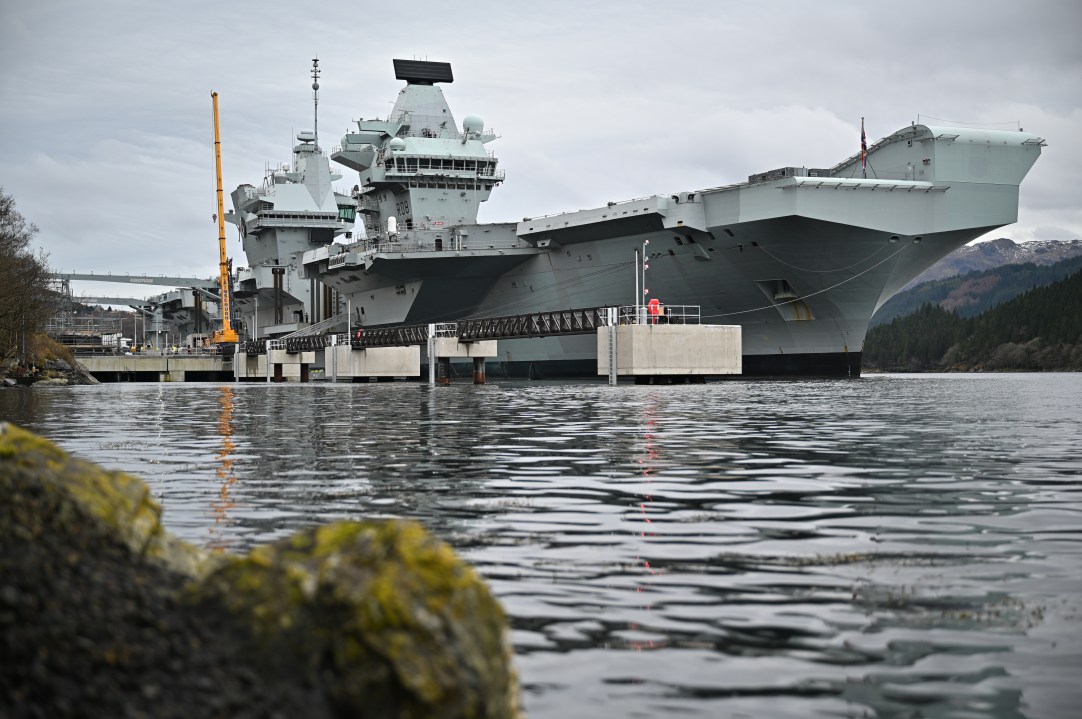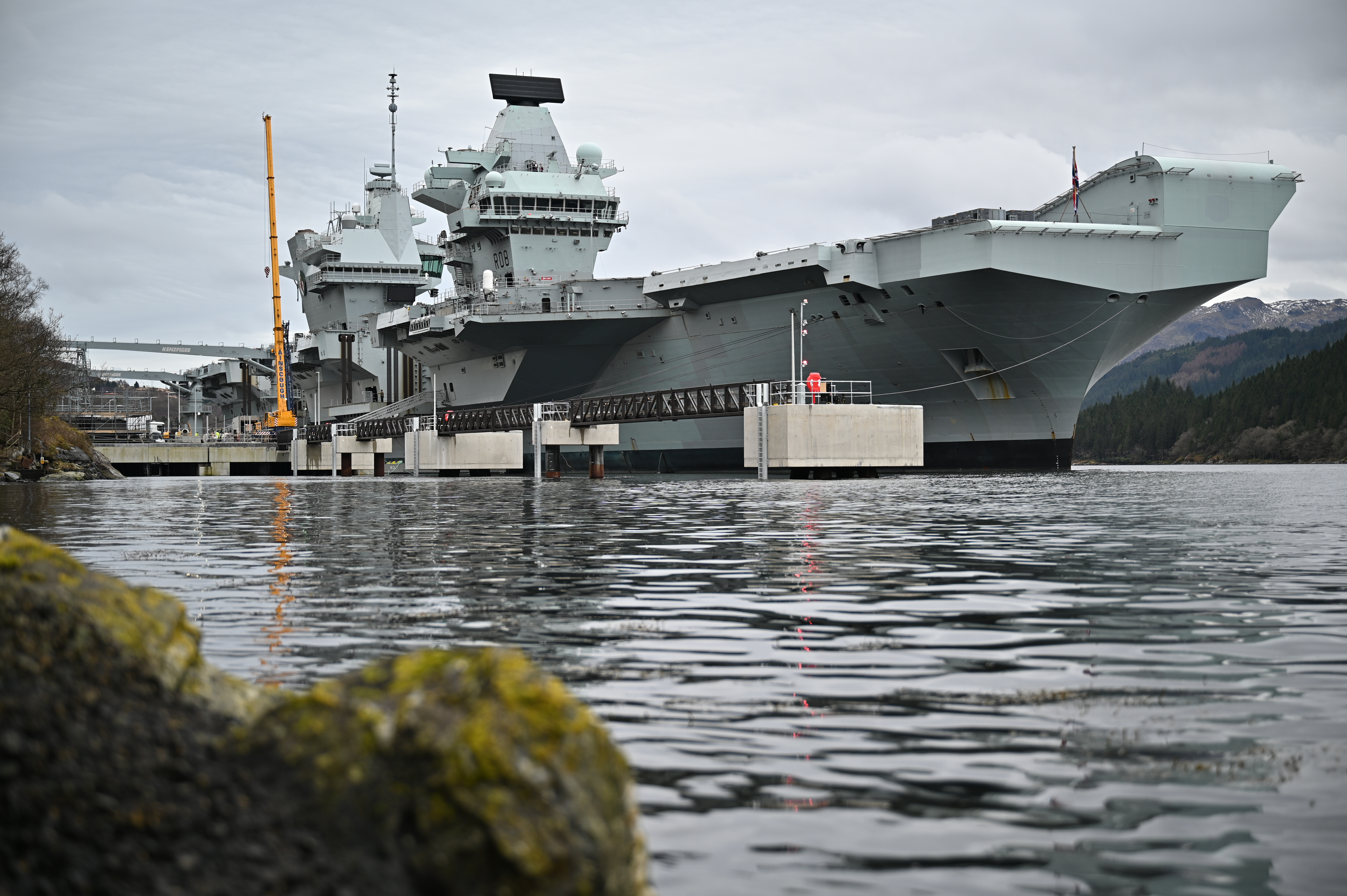The government’s integrated review of foreign and security policy, published yesterday, has landed surprisingly well considering that much of the Whitehall blob has been so dismissive of Boris Johnson’s concept of Global Britain. A few longstanding critics have been snippy about the new document. But no one can disagree that the review offers a genuine strategy.
In recent years, one of the most persistent ideas about the UK’s future on the world stage has been that we cannot make a go of things post-Brexit. Such ideas, so the counter-argument goes, are based on the deluded nostalgia of a ‘buccaneering’ nation, foolishly going it alone on trade and much else besides.
But the Global Britain strategy which emerges from the integrated review offers a different, more cautious and calculating approach. Instead of a swashbuckling spirit, one finds — unusually for a government document of this type — finely-tuned strategic prescriptions and a laudably clear-eyed analysis of the strategic landscape. This version of Global Britain proposes a sort of conservative internationalism, seeking to combine the realism and prudence of the former with the values of the latter — and to reconcile them with the enormous technological and geopolitical challenges of our times.
One of the most remarkable decisions has been to bring the space domain to the fore
The scale of the difficulties facing us — and the West as a whole — is hard to overstate. In the roughly five years since the last UK strategic review, Chinese growth has warped the global balance of power. Episodes like Huawei, Hong Kong or the bullying of Australia have given us a sense of what a Chinese-oriented world order would look like. In security affairs, we are witnessing the proliferation of advanced capabilities like drones, cyber and high precision missiles (now too in the hands of non-state actors) meaning more and better-equipped enemies, and an increasingly complex operating environment.
The problem is compounded by disappearing boundaries between different threats, and between civil and military tools, where everything including the media or the law is now seen by our adversaries as a potential weapon. As Tobias Ellwood, chair of the defence select committee said yesterday, there is ‘a blurring between peace and war, state and non-state, military and civilian threats’. One key point addressed in the review is the understanding that the United Kingdom itself is now the frontline in emerging hybrid contests. The Salisbury incident made that point clearly, as have various cyberattacks or the threat against the UK’s all-important undersea cables. Disinformation, attacks on the national grid, or on satellite capabilities — the days of a single, clear threat are over.
There are two major dilemmas for the UK’s international policymakers: how to secure ourselves properly in this environment at a sustainable cost; and how to ensure that the things we value most — democracy, innovation, an open society — are sources of comparative strength and advantage rather than sources of weakness. Take the Kremlin’s invasion of the Crimea; by the time the West could identify Putin’s ‘little green men’ as Russian forces, the invasion was already over. Our commendable commitment to the rules-based order was carefully exploited by Russia and hampered our ability to respond more quickly and effectively.
The solution to the first dilemma of sustainable security is to make science and technology the highest national priority. Technology has been placed at the core of the UK’s strategy, driving our military posture and ultimately, therefore, our geopolitical stance. There will be inevitable concerns about the trade-offs with conventional defence capabilities but technological change has always translated into military reform. The invention of the tank in the first world war and the creation of the long-range bomber in the second fundamentally changed how our military functioned. Later, nuclear science came to dominate the highest level of military strategy. This is merely a new rung on the same ladder, brought about by the maturation of certain game-changing technologies like hypersonic missiles.
One of the most remarkable decisions has been to bring the space domain to the fore. At Policy Exchange, the think tank that I work for, we set up a space policy unit in 2019, the only one of its kind in Westminster, to argue for the strategic importance of this new frontier to the national interest. Where the review could go further, however is in recognising ‘space power’ as a key instrument of global action — similarly to how ‘cyber power’ is framed — and in setting out a greater ambition for the UK than merely to become a ‘meaningful actor’ in space.
The other totemic element is the so-called ’tilt’ to the Indo-Pacific — the most conspicuous geopolitical decision in the review. The government has clearly concluded that the region is now the fulcrum of geopolitical competition, where the future of the international system will be decided. There are 32 references to the Indo-Pacific region compared to just 13 for the Euro-Atlantic: if language matters, then this is a significant indicator.
At the same time, there is a clear understanding that Britain should not and cannot expect to take a systemic leadership role in the region. In fact, the most notable point about the tilt is that local partners, from Japan to India to Australia, want more, not less, Global Britain in their region — that these Pacific nations value our contribution. This is a point made by former Japanese prime minister Shinzo Abe, who told a recent Policy Exchange commission on the Indo-Pacific that far from Brexit consigning the UK to irrelevance, it has actually made us a more attractive, less bureaucratically hidebound partner.
Ultimately, the Global Britain that comes out of the review is an advanced and nimble state, conscious of its limitations and strengths and with a clear notion of its role as a leading 21st century mid-ranking power at the heart of world affairs.







Comments